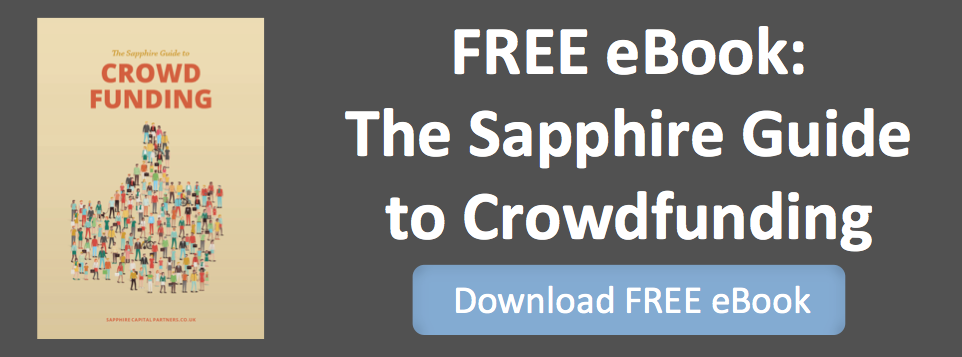 These are the ten most important considerations before launching a crowdfunding project. The golden rule is always to take plenty of advice and we are happy to help.
These are the ten most important considerations before launching a crowdfunding project. The golden rule is always to take plenty of advice and we are happy to help.
1.Why does your business need the money?
Crowdfunding takes two main forms, peer-to-peer lending and equity crowdfunding. If a business requires funds for a specific project, to cover a short term cash flow issue or to make a capital investment in equipment or property, then a lending model is usually adopted. If funds are required for both capital and revenue expenditure then equity crowdfunding may be more appropriate.
2.What time and resources can you allocate to the fund raise?
Most peer-to-peer lending sites have established memberships, so if you meet their requirements and secure a listing, in most cases they will market the investment to their customer base. This isn't the cheapest money, but it's relatively easy and quick to raise. An equity raise can't be approached in this way. Successful equity fund raising requires preparation, agreed strategy and well executed tactics. There is a much higher risk for the investor so you have to be able to sell the concept behind your business, invite investors to join your story and convince them that you can deliver.
3. What is the impact on existing share holders and the long term strategy?
Before considering an equity crowdfunding project, you have to consider the implications for existing share holders. If their share holding will be diluted and the value of their shares reduced, their reaction has to be understood. If the business has a long term strategy with a known exit, the implications of a successful equity crowdfunding project and potentially large shareholding have to be considered from the outset.
4. Do you want the world to know about your business or do you want it done quietly?
An equity crowdfunding project is an opportunity to promote your business and open it to a large audience of investors and potential customers. Start ups and fast growing businesses are using equity crowdfunding as a way to get market input for proof of concept, new product development or new market penetration. Peer to peer lending can be a more discreet means of raising money as businesses are often presented in more general terms with the peer-to-peer platform caring out due diligence for the investors and setting an interest rate to match the risk profile.
5. Who do you want to give you money?
Peer-to-peer lending is usually anonymous and a purely financial transaction. For businesses of any size this is greatly appreciated, as they want to be left to get on with growing their business. Others however are looking to grow their team and customer base. Equity crowdfunding is a way to attract smart money from investors who can bring experience, contacts in the industry and potentially other investors. There are risks with this with and a business has to have a clear idea of who and what they want from the outset.
6. How do you find the right partner?
Whether you choose peer-to-peer or equity crowdfunding you'll need to find a partner. There are at least 21 peer-to-peer sites in the UK and eight equity crowdfunding sites. Businesses should review the companies listed and what they are offering to make sure there is a natural fit. The small print should also be examined to understand what guarantees you have to sign for lending and the corporate governance requirements for equity. This is becoming an increasingly competitive market place and sites can pick and choose who they list, so it's important you approach them with a proposition that suits their model. When choosing an equity site have a clear understanding of the role of the platform following the raise. They often hold a nominee share on behalf of the crowd investors and some require a seat on the board. Be clear of all these issues and make sure they are FCA regulated, have secure money handling policies and adhere to the guidelines as set out by the UK Crowd Funding Association before you commit. Don't hesitate to ask us if you need help.
7. Do what you're told.
Once you get listed you have to trust the platform. They will advise you on how best to present your business to investors. They will have data and modeling information on successful raises and this should be availed of. They will also have PR and marketing strategies with track record. What will be asked of your management team and business may be outside your comfort zone. Appearing on short videos to promote your business is not something everyone will be comfortable doing, but it can be the difference between a successful and unsuccessful raise.
8. Don't forget the Financial Conduct Authority ("FCA").
The promotion of investments is a regulated activity so when choosing a platform it is important to be aware of their responsibility to work within the FCA frameworks around crowdfunding and/or peer-to-peer lending. Within the sector there has been widespread debate about what is approved. The FCA are expected to make some new rulings in April 2014 that will provide a firm set of guidelines and frameworks that platforms and listed companies must work within. The FCA's primary concern is that investments will be mis-sold to vulnerable investors. They also want to ensure that sites that facilitate lending should have reserves to cover any loses. The marketing of the investments is the area that will be most relevant to businesses promoting their raise. It is important to agree messaging and the distribution of marketing material so it only reaches qualified investors.
9. Go big, go loud.
If you chose an equity crowdfunding raise then it's important that you take every opportunity to promote it. Your investor market should be segmented and directly targeted (but make sure you always keep in mind the FCA promotional rules). You should take full advantage of social media - such as Twitter, Linkedin, Google+, Pinterest and Youtube to get the message to as large an audience as possible. As crowdfunding is still relatively new, PR is also proving to be effective with local press, trade journals and websites covering crowdfunding raises.
10. Treat new investors well and do what you said you were going to do.
If you borrow from a peer-to-peer lending site it goes without saying that you must adhere to the terms and meet your obligations. The implications of not are as severe as if you had borrowed from a mainstream or high street lender. With an equity raise, your new investors will fall into different camps. Some will sit back and wait for you to make them millions while others will be your foot soldiers ready to promote your business and share in your journey through good and bad times. Make them feel valued and appreciated and they will more likely help in difficult times and be more patient for a return.
 Sapphire Capital Partners LLP is authorised and regulated by the Financial Conduct Authority to conduct investment business. We assist our clients to structure crowdfunding platforms. We also help our clients prepare for a listing on a crowdfunding website. If you would like to learn more, please contact us at michael@sapphirecapitalpartners.co.uk
Sapphire Capital Partners LLP is authorised and regulated by the Financial Conduct Authority to conduct investment business. We assist our clients to structure crowdfunding platforms. We also help our clients prepare for a listing on a crowdfunding website. If you would like to learn more, please contact us at michael@sapphirecapitalpartners.co.uk

